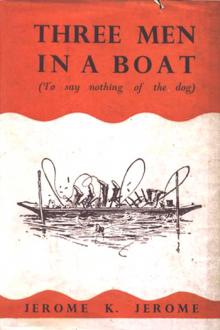A Lady's Captivity among Chinese Pirates in the Chinese Seas
A Lady's Captivity among Chinese Pirates in the Chinese Seas
Fanny Loviot sets out with her sister on a commercial speculation from Havre on the 30th of May 1832 bound for California. They touch at Rio Janeiro, and after many dangers, from which our authoress is never free throughout the volume, they reach San Francisco. A spirited picture is given of life in California; but owing to its dangers, Mademoiselle Fanny, leaving her elder sister behind, resolves to set out with one Madam Nelson on another commercial speculation to Canton, Macao, Hong-Kong, and Batavia. Her partner dies, and she at last arrives at Hong-Kong. All her hopes being thus disappointed, she resolves to return to California, and takes her passage in a Portuguese ship, the Caldera, under a Chilian flag and commanded by a Captain Rooney. After meeting with a typhoon they are boarded by pirates who strip the vessel, and force the Captain and his crew, our authoress and the only other passenger--Than Lingh, a Chinese merchant,--to submit to every indignity.
Book Excerpt
ere five women on board; and we sewed, embroidered, and played at loto, as cosily as in our own homes. Every evening we all assembled upon deck. There we talked and sang, and the singing, it is true, was not always very good; but at sea one's audience is not critical. Besides, it was pleasant to listen to French airs and choruses; and, when far away, all that recalls one's fatherland is welcome. By the way, I have forgotten to observe that our crew was entirely French.
And now the weather began to grow colder, and the sea, become more boisterous, no longer rocked us like a kindly nurse, but flung us rudely to and fro. Our embroidery, our loto, our singing came abruptly to an end, and we found ourselves subjected to all the miseries of a maritime journey. Every face was pinched, yellow, and discontented, and only groans and complaints were heard on every side. We were not absolutely in any kind of danger; but we were the victims of sickness and ennui. Thus several long weeks w
Editor's choice
(view all)Popular books in Adventure, Nautical, Travel, Pirate Tales
Readers reviews
2.0
LoginSign up
A true story with newspaper clippings to prove it. Not nearly as risque as the title suggests, the protagonist's time as a prisoner makes up a small portion of the book. Her ravishment by pirates is glossed over. Mostly interesting as a time capsule for 1850s California gold rush.
- Upvote (0)
- Downvote (0)
Popular questions
(view all)Books added this week
(view all)
No books found

 Free Download
Free Download



















